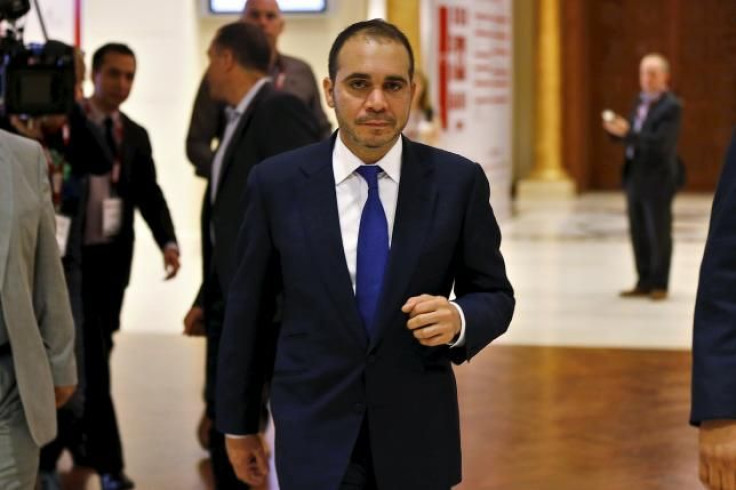Who Is Prince Ali bin Al-Hussein? Presidential Candidate Could Be Positive Step In Ending FIFA Corruption

The race for the White House has nothing on Friday’s vote for FIFA’s next president. Incumbent 79-year-old Sepp Blatter, a lightning rod for criticism following widespread corruption scandals, is seeking his fifth term since taking office in 1998. Opposing him: 39-year-old Prince Ali bin Al-Hussein, a relatively unknown Jordanian who serves as the FIFA Vice President for Asia, and who called for the publication of the Garcia Report, which outlined corruption allegations in the recently awarded 2018 and 2022 World Cup.
The election comes on the heels of perhaps the most contentious period in FIFA’s long and controversy-prone history. On Thursday, Blatter addressed the congress, acknowledging “unprecedented and difficult times” for soccer’s world governing body after Wednesday’s indictment of several FIFA officials in Zurich by the U.S. Justice Department for alleged wire fraud, money laundering and racketeering.
"I cannot monitor everyone all of the time ... those who are corrupt in football are in a minority,” said Blatter. He contends that he is the man who should be entrusted to rebuild FIFA.
On paper it seems like a classic case of “out with the old, and in with the new.” But FIFA history demonstrates that ousting Blatter is a lot harder than it looks. The same governing body that barely batted an eye when the 2022 World Cup was awarded to Qatar, a Middle East country smaller than Connecticut with summer temperatures that can reach as high as 130 degrees Fahrenheit, are expected to maintain the status quo and bring back Blatter.
There is little reason to wager against Blatter winning again: He's been down this road before. In 2011, he ran unopposed despite facing similar accusations of corruption and bribery.
How was Blatter received by congress when he won his fourth term? He was given a thunderous ovation, of course. Despite UEFA President Michel Platini recent appeals for Blatter to step down, saying: "I have had enough -- enough is enough, too much is too much,” there are too many countries who still support him.
The man standing in between Blatter and four more years is the son of King Hussein of Jordan. The U.S. and U.K.-educated Jordanian Football Association president is the only challenger in the field after former Portuguese superstar Luis Figo and current Royal Dutch Football Association chairman Michael van Praag withdrew their candidacy last week. Prince Ali is considered the tougher candidate to combat corruption, which has gained him favor from some Western nations.
In February, Prince Ali announced that U.S. Soccer had nominated him for president. The English FA had also announced they were backing Prince Ali, and he received additional support from Belarus, Malta and Georgia. This week, it was announced that Australia is also backing Prince Ali.
But those countries won’t be enough to win, as Prince Ali knows.
"Obviously there is a culture of intimidation -- let me put it that way -- within FIFA," he said in February. "In the past, if people take a stand they possibly end up being punished for it. That is why the vote is secret and I hope that if things are played fairly and played rightly that things will go in the appropriate way.
"I believe the incumbent has a natural advantage but I assure our national associations that we are moving in the right direction and I will be the right candidate for them.
"Frankly I have been in football for many years. In the last four years I have understood what is going on. I have worked with our players and our fans and understanding their needs. I want to bring that back to football.
"The owners of the games are the fans and the players and the managers. We need to reverse this pyramid, we are here to serve the game not to dictate how things are done, and we also have to restore confidence and I believe I can do that."
In his manifesto, Prince Ali stated: “My focus will be on a four-year term, and I promise to work with National Associations and the Confederations to reform FIFA … and to collaboratively produce a 10-year plan to take FIFA – and football – successfully into the future.”
Aware of the political climate surrounding FIFA, he stated that he is “a straightforward person with straight-forward ideas and ethics” and believes “in uncompromising integrity.”
In the corporate responsibility section, Prince Ali cited the need to combat player trafficking, player and fan racism, match fixing, doping and bolstering stadium security.
© Copyright IBTimes 2024. All rights reserved.












